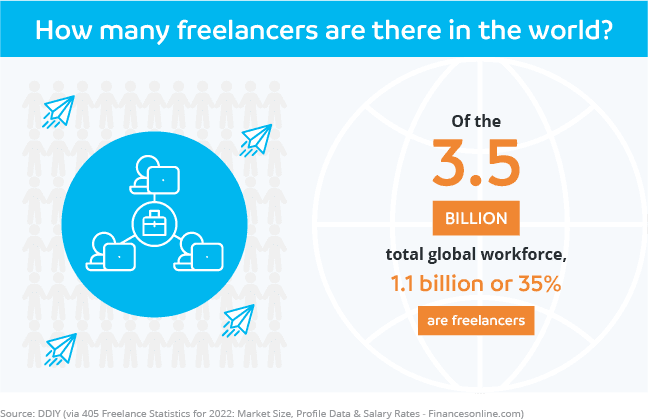Philippines gig economy: The insights and risks
For the past couple of years, nothing looks to be slowing down the momentum of the social phenomenon known as the ‘Philippines gig economy’. On the back of a global pandemic that saw remote work barriers shattered, up to 1.5 million Filipinos are offering their freelancing services on international online platforms1 and the country ranks as the sixth fastest-growing gig market in the world2.

The Filipino freelance market and the onshore businesses that rely on their services appear to have a bright future given the global gig economy is worth about $455 billion and growing annually by 17.4%3.
And who can forget about the case of Ms Joanna Pascua v Doessel Group Pty Ltd4, which late last year saw Australia’s Fair Work Commission rule that the offshore worker in the Philippines could pursue an unfair dismissal rights claim against the Queensland law firm that she had performed duties for.
The Fair Work Commission has seen similar cases recently, and as a result, many businesses are now concerned about the structure of their offshoring agreements. Outsourcing is popular for good reason, however, Ms Pascua’s case sets a clear precedent that companies need to tread carefully when choosing where they send their work offshore.
Filipinos have a deserved reputation for being hard workers but in the rush to be part of the gig economy revolution, some onshore businesses are ending up frustrated, disillusioned and out of pocket.
Rarely has a truer word been spoken. Filipinos are excellent workers but in the rush to talk up the nation’s freelance market, too many people are failing to mention that not all is as it seems and, in turn, many onshore businesses are ending up frustrated, disillusioned and out of pocket.
What is the Philippines gig economy?
The Philippines gig economy is a term used to describe the growing number of Filipino freelancers and independent contractors offering their services to Western organizations. There are benefits for both parties, with gig workers having more flexibility and independence than full-time staff and employers saving money by not needing to provide benefits such as health coverage and paid annual leave. On the flipside, freelancers have little or no job security, while businesses have less control over quality of work and run the risk of encountering other hurdles such as data security breaches and even ransom.

Source: The gig economy: a liquid workforce (microsourcing.com)
Key insights into the Philippines gig economy
The Philippines has established itself as a respected outsourcing destination but the rise of the gig economy has created a new wave of workers keen to connect with Western businesses, largely via online platforms.
- Industry participation: the gig economy encompasses multiple industries, with the Philippine Statistic Authority finding that the top sectors engaged in online platforms or mobile applications including Retail (28%), Agriculture (14%) and Construction (11%)5. However, in a country that boasts a population of more than 116 million people, even a smaller market share translates to thousands of opportunities for onshore businesses to connect with talent. For example, Administrative Services may only represent 6% but that equates to 107,000 freelancers.
- Demographic breakdown: the sporadic and fluid nature of freelancing means it can be difficult to pinpoint exact data but there are clear trends in the Philippines gig economy. The digital literacy of younger people means a significant portion of gig workers are under 30 years of age, while there are strong indications that a growing of Filipino women are embracing the chance to use the flexibility of the sector to embrace work opportunities. Gig workers can also be found in both urban and rural areas, with a significant number residing in suburban areas due to the capacity to from work from home.
- Technological advancements: the gig economy boom owes much to digital platforms that connect freelancers with global clients. Websites such as Upwork, Fiverr, and OnlineJobs.ph enable Filipinos to secure remote work in fields such as graphic design, writing and virtual assistance, while mobile banking and digital wallets like GCash and PayMaya streamline payments. Freelancers are also using AI-powered tools to boost productivity, while automation simplifies payments, client matching and project management.
- Protection for gig workers: the rapid growth of the gig economy has underscored the need for stronger regulations to safeguard workers’ rights and benefits. Freelancing may seem like a dream job but without clear contracts and legal protections, many workers risk job instability or even worse exploitation. As highlighted by Joanna Pascua’s Fair Work Commission case, there are also dangers for onshore businesses that fail to implement watertight employment agreements.

Source: Philippines gig economy: The rise and risks (microsourcing.com)
Risks of the gig economy
There is a lot to like about offshoring – reduced costs, increased efficiencies, improved productivity – but there is a big difference between partnering with an established outsourcing provider and teaming with an independent freelancer. While the former comes with the checks and balances an onshore firm would expect of a professional organization, the latter exposes them to risks that too often result in tears.
- Background checks: the gig economy is a catchy name for freelancers. They are individuals who typically sit at their own computers and are granted access to a client’s systems without those clients truly knowing who they are. Quality outsourcing providers conduct background checks (e.g. police records, university results, previous work experience) that ensure the people working for them are not only highly qualified but reputable. That is rarely the case with freelancers and that is a risk not worth taking.
- Data security: top outsourcing firms are bound by ISO compliance that protects data security and have insurance cover to address concerns. No such requirement exists for independent contractors. Then there is the issue of equipment, with the likes of MicroSourcing providing offshore staff with computers that actively monitor their productivity. Not for freelancers, many of whom access client data on the same computer they or their family use for online activities such as gaming, gambling and social media. Is that a risk worth taking?
- Quality of work: the best outsourcing providers are those with definitive guidelines and structures in place for their staff. This includes seamless onboarding, on-the-ground coaching and the ability to monitor and measure performance. Likewise, they have scheduled conversations with their clients to discuss the quality of their offshore employees and, if needed, these conversations can also be used to address any concerns. This is essentially non-existent when businesses enter the freelance market, which relies on trust (and hope) in an individual rather than the established protocols of a professional organization.
- Tax avoidance: while onshore clients may not be directly impacted, it is worth noting the majority of Filipinos tapping into the gig economy are turning a blind eye to their tax responsibilities. Many freelancers sell their wares via online platforms that pass on payments, leaving workers to put the money in their pocket without contributing tax. Outsourcing providers ensure their offshore staff contribute tax and so they should be given the vital role it plays in benefiting their communities.
- Ransom: sometimes rare cases are the most concerning and so it is with the threat of ransom. It is not unheard of for freelancers to reach a deadline and threaten their clients with not handing over their work unless they receive a ‘bonus’. Similarly, granting relatively unknown individuals access to sensitive information has resulted in onshore businesses being forced to negotiate with unscrupulous freelancers.
What does the future hold for the gig economy in the Philippines?
There are now hundreds of millions of freelancers in the world and, to be fair, many deliver what is asked of them. That said, there are clearly risks for businesses that choose to link directly with Filipino freelancers rather than have the peace of mind that comes from partnering with an outsourcing provider. Removing that middle layer undoubtedly opens up risks and too many companies only learn that after the damage has been done.
Offshore teams aren't a data security liability; they're becoming a formidable asset. Discover how offshore staffing enhances data compliance by leveraging global talent for 24/7 monitoring and robust security measures.
Reference:
[1] Insight: Philippines Freelance Market 2022 Report identifies uphill trend of Filipino freelancers with overseas clients - adobo Magazine Online
[2] pubs.payoneer.com/docs/payoneer-gcash-philippines-freelance-report-2022.pdf
[3] The Gig Economy Boom: Opportunities and Challenges for Freelancers in 2025 - The Company Cebu
[4] 2024fwc2669.pdf
[5] Home | Philippine Statistics Authority | Republic of the Philippines (psa.gov.ph)
Popular posts
Browse by topic
- Accounting
- Accounting & Finance
- All Industries
- Banking
- BPO/RPO/HRO
- Communication
- CSR & ESG
- Customer & Client Acquisition
- Customer Experience
- Cybersecurity
- Cybersecurity & Compliance
- Data Management
- Digital Operations
- Digital Transformation
- eCommerce
- Education
- Employee Engagement
- Engineering & Construction
- Financial Services
- Healthcare
- Hospitality and tourism
- HR & Recruitment
- Information Technology
- Insurance
- Legal Services
- Logistics
- Offshoring & Outsourcing
- Outsourcing
- Professional Services
- Real Estate
- Retail & eCommerce
- Startups
- Talent Acquisition and Retention
- Technology
- Trends & Guides
- Workforce Integration
Related Posts
How employers can reduce healthcare costs
A lot has been written about how the working world has changed in the wake of the COVID-19 pandemic. Where many managers once linked productivity..
Defining data – the difference between data privacy, data security and data protection
There is no shortage of issues that can inspire sleepless nights for business leaders. Talent shortages, regulatory pressures, shrinking budgets and..
Is offshore staffing the key to data compliance?
With entire websites dedicated to exposing businesses daily that have been hacked or have had their data breached daily, it’s no wonder why data..
